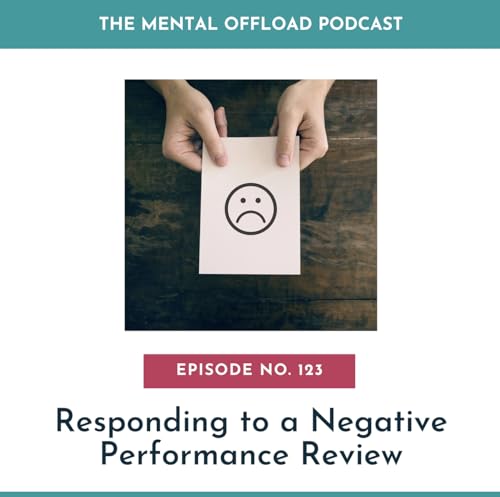If you've ever walked into a performance review expecting a gold star, and walked out feeling rattled, or even a little angry, you're not alone.
In fact, you'd be in good company. Many highly competent women have had a review in their career that left them questioning their abilities, their reputation, or their future at the company.
Sometimes, it's a specific piece of feedback that stings. But often, it's something that cuts deeper. A sense that you're unrecognized, unseen, or unjustly targeted.
And, it can leave you panicking as you wonder: how can I defend myself, without making it worse?
You want to stand up for yourself, but not seem defensive.
You want to correct the record, without escalating the conflict.
You want to protect your career, but it's hard to trust your boss.
That tension is exactly why I recorded this week's episode.
I walk you through the immediate steps to take when you're hit with a negative review. And, more importantly, how to respond in a way that keeps your reputation intact and your leadership presence strong.
This is the guide I wish every woman had before walking into a review that goes sideways.
Because the most common advice on performance reviews is extremist:
Either you're encouraged to swallow your concerns and smile meekly as you promise to do better next time…
…Or people will tell you must draft a point-by-point rebuttal, so that "their side" doesn't stain your permanent record.
Neither approach works, when your goal is to protect your career and reputation.
In this episode of The Mental Offload Podcast, I walk you through a more strategic response to a bad annual review. One that lets you advocate for yourself, without getting labelled combative or insubordinate. One that helps you call out bias, without looking like "the enemy". One that helps you rebuild your footing quickly, even if the review wasn't fair.
In this episode, you'll learn how to move through the initial panic of a bad review, and how to respond in a way that positions you as an even stronger leader.
What You'll Learn:
• The first thing you must do after hearing a negative review, especially if it caught you off guard
• Why you need to pay attention to facts and perceptions
• Impactful scripts for correcting the record, without sounding argumentative
• What to do when the critique feels biased, vague, or rooted in the motherhood penalty
If you've ever been knocked off balance by a performance review, this episode will help you get back up stronger.
For more information, visit The Mental Offload.
 2026/01/2723 分
2026/01/2723 分 2026/01/1335 分
2026/01/1335 分 2025/12/1644 分
2025/12/1644 分 2025/12/0242 分
2025/12/0242 分 2025/11/1826 分
2025/11/1826 分 2025/11/051 時間
2025/11/051 時間 2025/10/2140 分
2025/10/2140 分 2025/10/0757 分
2025/10/0757 分
